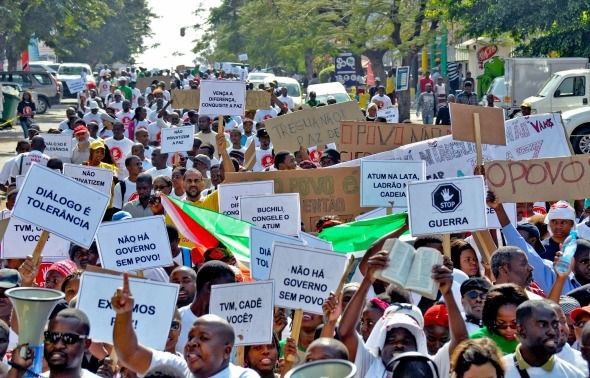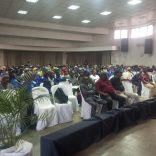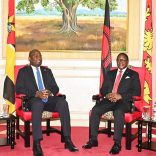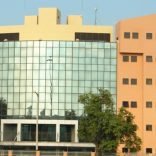Mozambique: House arrest bracelets will be introduced in the country by December - Watch
Mozambicans born after the war are the “obstacle” to country backtracking on peace – Sant’Egidio Community

File photo: Lusa
Father Angelo Romano, who participated in the peace talks in Mozambique, said on Saturday that Mozambicans born after the civil war, now half of the total population, have been and will be an “obstacle” to any attempt to reverse the peace process.
For the Sant’Egidio member, the most important factor for the success of the negotiations, and one which “must be considered”, was “the will for peace among the Mozambican people”.
“At this time, more than 50 percent of Mozambican citizens were born after the signing of the general peace accord of October 4, 1992. So there is a new generation who has not known war and does not want to know war, does not want to go back ” he told Lusa by telephone from Italy.
“If anyone thinks of proposing conflict, they will face this obstacle, which is a generation that wants an ever more modern, more advanced country, with its normal democratic dynamic,” he added.
The will of this generation has therefore, in his view, made a great contribution to peace and would be a guardian of that peace in the future.
Last Thursday, Mozambican President Filipe Nyusi and Renamo leader Mozambican National Resistance opposition party Ossufo Momade signed an agreement to end hostilities, and the final general peace agreement is expected to be signed this month and then be submitted as a bill to parliament.
A member of the Sant’Egidio Community, Fr. Angelo Romano was in 2016 one of the international mediators appointed by the European Union, and part of a team that worked on dialogue between the Mozambican government and the largest opposition party in Mozambique to find the way for the country to emerge from the crisis it was experiencing.
“A very serious crisis,” he said, recalling that at the time Renamo president Afonso Dhlakama “who was in Gorogonsa and refusinig to return to Maputo” and “there were attacks in many parts of the north and in the centre of the country, with deaths and serious problems”.
“The work done at that time [by the international mediators] was the unleashing of a dynamic of dialogue which was fulfilled later, because from December of that year, President Nyusi took the dialogue directly in his hands, without further help from international mediators.”
“From then on, the dialogue was completely managed by the presidency of the Republic and Renamo.” And to good effect, he says.
The government and opposition managed to achieve the main objective, which was “the issue of constitutional reform and decentralisation”, resolving Renamo’s main complaint.
At that time, the priest recalled, Mozambique had no form of governor election. “So there were provinces where Renamo always had an absolute or relative majority, but then there was always a governor appointed by the ruling Frelimo party president,” he said, admitting that this was an “institutional contradiction” that ” was a problem that had to be solved”.
In Romano’s opinion, important progress was made while Dhlakama was still alive.
But, Ossufo Momade, who succeeded to Renamo’s leadership after Dhlakama died in May 2018, “also took matters in hand,” because “the danger was that of a successor who did not have the same authority, the same determination to move the dialogue forward”.
Romano’s also highlighted “the positive action” of President Nyusi, who refused to “exploit Renamo’s weakness at the time of Dhlakama’s death”.
Nyusi instead set out to “confirm what was already agreed with Dhlakama in dialogue with the new Renamo leadership, which was indeed a very positive choice,” he said.
The Mozambican government and Renamo had already signed a General Peace Agreement in 1992, ending 16 years of civil war, but it was breached between 2013 and 2014 by armed clashes between the two parties caused by disputes related to the general elections.
In 2014, the parties signed another agreement to end military hostilities, which again failed to hold until the declaration by Renamo in 2016 of an indefinite truce without any formal agreement attached.












Leave a Reply
Be the First to Comment!
You must be logged in to post a comment.
You must be logged in to post a comment.